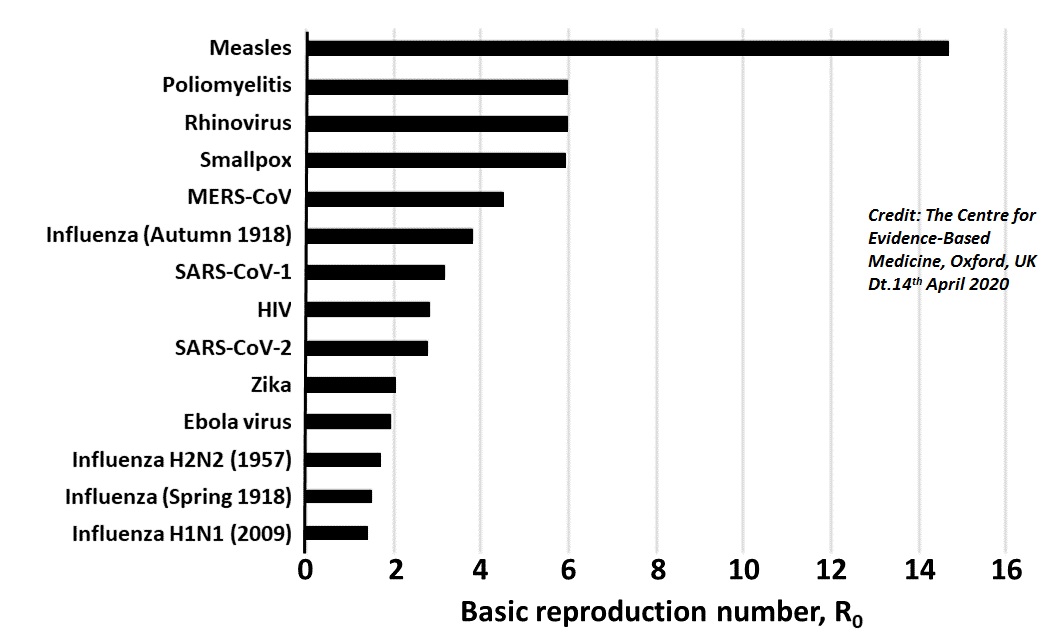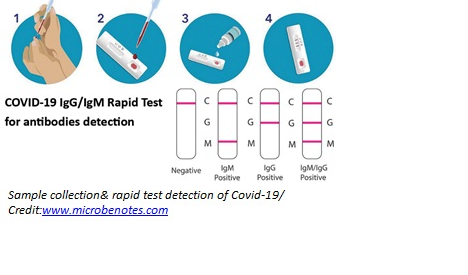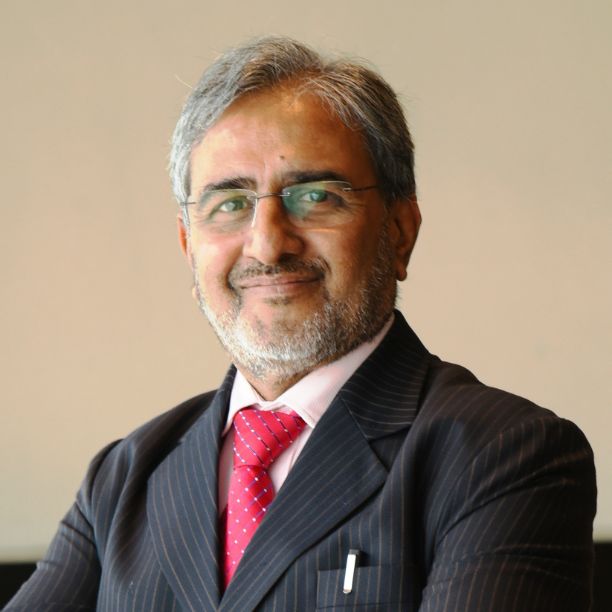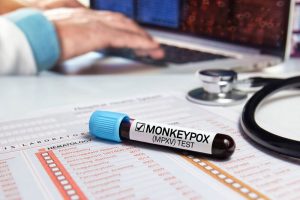Crucial lessons from 53 Mumbai Journalists who tested positive for Covid-19

Image For Representation
Image For Representation (Image by <a href="https://pixabay.com/users/geralt-9301/?utm_source=link-attribution&utm_medium=referral&utm_campaign=image&utm_content=4924022">Gerd Altmann</a> from <a href="https://pixabay.com/?utm_source=link-attribution&utm_medium=referral&utm_campaign=image&utm_content=4924022">Pixabay</a>)
The latest shocker that showed 53 Journalists in Mumbai out of 171 tested having infected with Coronavirus has turned out to be a great learning point. Surprisingly most of them were asymptomatic on 16-17 April when at a special camp their samples were taken for Covid-19 Polymerase Chain reaction (PCR).
Astonishingly here Covid-19 positivity rate is almost 30% (53 out of 171) as against positivity rate of 6.7% in Maharashtra (8,068 of 1,20,620) and 4.4% in India (29,451 of 6,65,819 tested) as on April 27. This is a global record in itself. Just as they were probably infected from other asymptomatic people, they do have potential of infecting others too- in family and in the community. They were supposed to be followed-up with even their family members to be tested, but no update as yet – just like a forgotten story!
Disturbing R0 in India, especially Mumbai
R0, pronounced “R naught,” means Reproduction number, is a mathematical term – indicates how contagious an infectious agent is and how many others the infected one is capable of infecting in the course of the illness. Covid-19 patient has an average infectious stage of 10-14 days and initially R0 for Covid-19 was thought to be 2.5 to 3, same as that for HIV. But HIV being a very chronic infection 2-3 new infections are reproduced in several years, whereas in Covid-19 it is within just 2 weeks. R0 for measles is 14-18 days. According to a recent study published online in Emerging Infectious Diseases, the R0 for Covid-19 is a median of 5.7, double than the earlier estimate. R0 in India, especially in Mumbai seems much higher. This should have been thought of when almost 57 healthcare workers from Wockhardt hospital, 43 from Bhatia Hospital and 24 from Jaslok Hospital tested Covid-19 positive. With an R0 of 5.7, at least 82% of the population needs to be immune to Covid-19 through vaccination and herd immunity, to stop its transmission. Test-Trace-Track-Test – are important to contain any infectious disease including Covid-19. Bhatia and Jaslok hospitals have been closed for admissions, whereas Wockhardt hospital has been made Covid-19 designated hospital.

Community Transmission
We should gracefully accept that we are in third-phase of Covid-19 spread –if not in the entire country, but surely in states of Maharashtra, Gujarat, Delhi, Punjab, Rajasthan, Tamil Nadu, Telangana, Andhra Pradesh and Madhya Pradesh. The infections among journalists clearly indicate, it is a community transmission of Covid-19, so also among slums and chawls of Mumbai – the fact which has been vehemently denied by the authorities till date and being designated as ‘clusters’, ‘large clusters’ and ‘too many clusters’ .It is highly disturbing when those discharging uninterrupted services in ‘come-what-may’ manner – healthcare workers, journalists, frontline volunteers and police are getting infected in a big way.
Make Covid-19 Rapid Test available as widely as possible
We are aware of the limited strategies to stem the Corona-pandemic. Despite the 16 th March 2020 directives of WHO ‘test, test, test’ – but in reality it is easier said than done, especially so for the developing countries. The only test available then was highly advanced and expensive tests called PCR that requires specialized laboratories, highly trained technicians who are proficient from sample collection to running the tests and interpreting the results. Despite all this the yield is only 65-70%, others come false negative as its sensitivity is low. India did respond to the WHO call with the testing capacity being steadily expanded and picked-up well now. We picked up from an average 500 tests daily (or just 30,000 tests in two months) to over 665,819 tests till 27 th April and a staggering 40,000 daily, though we may still be very low in ratio of testing per million population – 482 per million in India versus 15000 to 30000 in most prominent countries.

Currently for Covid-19 we have – PCR done on swab drawn from naso-pharynx or throat and Rapid Antibody Test and Enzyme Linked Immuno-sorbent Assay (ELISA); which are done on blood samples. Covid-19 tests are done based on – clinical suspicion, partner and family member testing, epidemiological or surveillance testing, self-suspicion, contact tracing, mandatory screening like those for delivery, dialysis, chemotherapy and pre-surgery. Maharashtra state has stopped testing asymptomatic people who are contacts of Covid-19 patients, though we see several asymptomatic people have tested positive for Covid-19. Whereas ELISA tests; which can show titre of IgG antibodies are not available, Rapid Test have run into rough weather in Rajasthan, Punjab and west Bengal so were withdrawn from the laboratories.
Prohibitive cost of Rs. 4500/- faced by eligible people to get tests is a major impediment. If they go to public laboratories/centres they face inconvenience. In fact as per Government of India order of 21 st March 2020, the cost of Rs.4500/- per test at private laboratories, was based on preliminary PCR Rs.1500/- for suspect cases and confirmatory PCR Rs.3000/-.
My knowledge is –that although they only do a single PCR, there has been no revision in the cost. However Mumbai Municipal Corporation renegotiated and paying 3500/- whereas Telangana Government is paying only 2450/- per test for testing in private labs. The majority of privately done Covid-19 tests are from mandatory Covid-19 tests on pregnant, dialysis, chemotherapy and pre-surgery patients who are defenseless. They are physically and economically inconvenienced in addition to being harassed and postponing treatments.
A 34-year old Mumbai doctor died on 23 rd April 2020 just waiting for Covid-19 report and getting proper treatment. In fact, this has multiplied importance of Rapid test. It is advisable to offer Rapid antibody test to the remaining 118 journalists who tested Covid-19 negative by PCR in Mumbai, as also field journalists all over the country who have been out in the field for Covid-19 reporting over last two months. The advantage is, if IgG is positive, that confirms immunity to Covid-19 in them. Unfortunately the Rapid tests recived from China have been caught-up in over-pricing racket as well as poor quality results and stands withdrawn on 21 st April itself. Fresh tendering process will begin soon.
Private clinics or Hospitals are not allowed to carry out rapid tests. If allowed, it will be certainly a game-changer. Government can periodically release list of approved rapid tests and let the private sector use it as is done with all other rapid tests. Let there be no restriction or ration on the rapid tests. Whereas all negative tests can be reported as negative with an advice for retest after 1-2 weeks, positive tests can be referred to the Government-approved testing labs. In that scenario the entire private sector medical profession can be an asset to the government and will aid to the detection of additional Covid-19 cases; which may remain out of ambit otherwise.
Written By Dr Ishwar Gilada

Dr. Ishwar Gilada is Consultant in HIV and Infectious Diseases, President AIDS Society of India and Governing Council Member, International AIDS Society
He can be contacted at: gilada@usa.net







